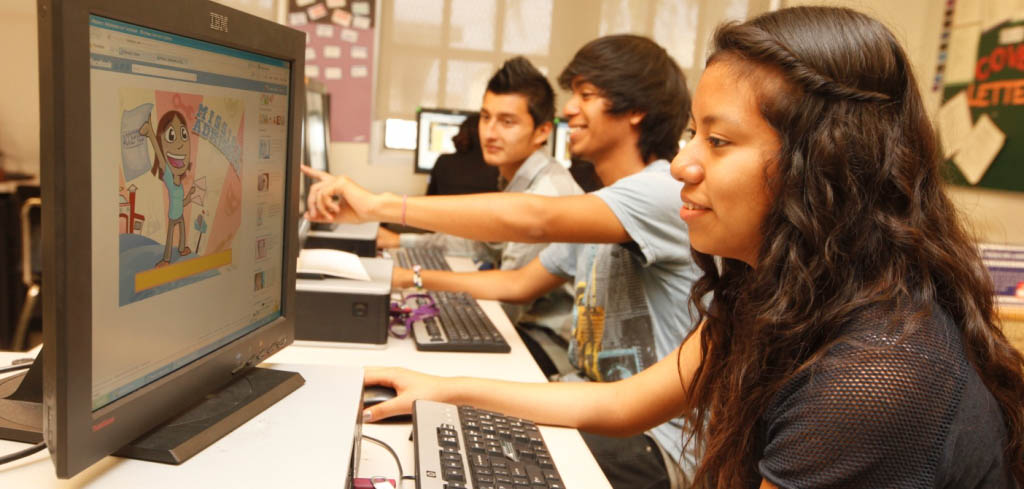
New research: Digital college guidance, STEM support programs, women leaders in higher ed
Recent works by Pullias researchers tackle college access in the digital age, support programs for STEM students and challenges for women leaders in higher education.
Read the abstracts and excerpts for these papers and find out more about the projects that inspired them:
Corwin, Z., & Maruco, T. J. (2018). Navigating the tension between scale and school context in digital college guidance. Journal of Information, Communication and Ethics in Society. 16(3), 303-310. https://doi.org/10.1108/JICES-03-2018-0019
The purpose of this paper is to highlight the potential of digital tools to address the significant challenge of increasing access to college and outline challenges and opportunities in effectively implementing a digital intervention across an entire school.
Zoë B. Corwin is a research associate professor at the University of Southern California and directs the Digital Equity in Education project for the Pullias Center. A past research project specialist for the Pullias Center, Tattiya Maruco assists the Digital Equity in Education team.
Kezar, A. J., & Holcombe, E. M. (2018). Challenges of implementing integrated programs for underrepresented students in STEM: A study of the CSU STEM collaboratives. Educational Policy. http://journals.sagepub.com/doi/10.1177/0895904818802091
With emerging evidence about the efficacy of integrated support programs for college students and increasing attention nationally to creating such programs, it is important to understand implementation barriers that might affect program success. This study is one of the first to examine implementation of integrated programs, with a particular focus on the challenges related to connecting or aligning programmatic elements across departmental and divisional boundaries. The authors conducted a case study of eight institutions that implemented integrated programs that supported the transition to college for underrepresented students in science, technology, engineering, or math (STEM) and identified several implementation challenges that are unique to integrated programs.
Adrianna Kezar is a professor of higher education at the University of Southern California and co-director of the Pullias Center for Higher Education. A past research assistant at the Pullias Center, Elizabeth Holcombe is a visiting research associate at the Center for Postsecondary Research at Indiana University Bloomington and managing director of the VALUE Institute. Explore more of Kezar and Holcombe’s work on the CSU STEM Collaboratives.
Wheaton, M. M., & Kezar, A. (2019). Interlocking systems of oppression: Women navigating higher education leadership. In H. Schnackenberg, & D. Simard (Eds.), Challenges and Opportunities for Women in Higher Education Leadership (pp. 61-83). Hershey, PA: IGI Global.
Women in higher education face many challenges as they navigate senior-level administrative positions on college campuses. Much of the existing research on women’s leadership in higher education does not highlight the ways in which women of varying overlapping identities navigate leadership uniquely. In this chapter, the authors discuss the need for the theories of intersectionality and positionality, which foreground the intersection of many identities and further contextualize them within systems of power. Through an analysis of existing empirical work, this chapter draws attention to tools and strategies that can be learned from women of multiple oppressed identities and positions of leadership.
Adrianna Kezar is an expert on leadership and scaling change in higher education. Marissiko M. Wheaton is a research assistant at the Pullias Center and a Rossier Dean’s Fellow in the Urban Education Policy PhD program at USC Rossier School of Education. Kezar and Wheaton are among the co-authors of the recently-released report, Speaking Truth and Acting with Integrity: Confronting Challenges of Campus Racial Climate.
Photo: High school students play Mission: Admission, a digital game developed as part of the Pullias Center’s Digital Equity in Education project. Credit: Steve Cohn for USC